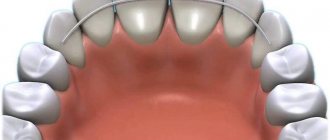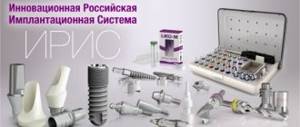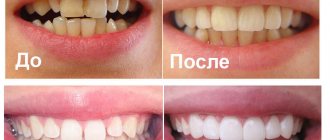Home / Dentistry. Dental treatment programs under VHI
When we think about voluntary health insurance, many of us think about protecting our teeth in relation to good dentistry. Dental treatment, especially when there are serious problems with them, is beyond the means of many, but a VHI policy can reduce the overall costs of medical care. How to choose the right VHI dental policy and how much will medical insurance for teeth cost?
Regular VHI programs rarely provide good coverage for dental care. Some inexpensive policies do not provide dental services at all. Before concluding an insurance contract, you must make sure that the services contained in the list of the contract suit you and that they will be sufficient or you need to immediately purchase the missing options.
Steps
Determine your needs, what kind of dental insurance do you need?
It is very difficult to say exactly what kind of insurance or discount plan you need. Not everyone has the same problems and not everyone needs the same dental treatment. If you have children, you need to take them into account. If you have already experienced severe dental problems, your needs will be different from those who have not had dental problems. All of this should be taken into account when choosing dental insurance.
Determine your options Research possible insurance plans.
Check what dental insurance plans you have. Ask what procedures they cover. Before you make your choice, you should have a clear understanding of each possible option. You should compare all possible insurance plans and choose the one that gives you the best deal based on price and your needs.
Choosing dental insurance.
Grade. There are a large number of factors that go into choosing your dental insurance. The importance of each factor must be assessed according to your individual needs. Some of them may be important to you or other people to one degree or another.- Monthly fee. The cost of your insurance is very important. Make sure the monthly cost of your dental insurance fits into your monthly budget.
Covered Procedures. All routine dental procedures such as teeth grinding, dental fillings, root canals, in-depth exams, x-rays should be covered. Most insurances do not cover cosmetic procedures. Procedures such as braces may be covered by other insurance plans, but up to a certain level. Dental insurance coverage for procedures such as braces or dental implants may result in an increased monthly premium. Before choosing an insurance plan, determine your coverage.
- Maximum monthly limit. Most dental insurance plans cover between $1,000 and $1,500 per year. All expenses above this amount are your responsibility. Some insurance companies offer special plans with higher limits of up to $3,000, and despite their higher monthly premiums, they are in high demand among people with poor dental health. Some plans have not only a limit on the amount of coverage, but also on procedures per year.
- Franchise. Typically, the insured person must reach a deductible before the insurance company begins to cover the costs, so the deductible amount should also be taken into account when calculating the total cost of dental insurance. The regular deductible can range from $25-$50 per person insured, depending on the insurance plan.
- Waiting period. Dental insurance has limitations on pre-existing problems or a long waiting period of 6-18 months before coverage for major dental procedures begins. This can be a problem, especially if you may need a major dental procedure soon.
- Special conditions. RUR (Regular, Habitual and Reasonable) dental insurance providers will calculate the value of your treatment costs and compare them with the cost of treatment in their database; and if your expenses are less than the required level, you will be returned an agreed percentage of the amount, but if they are higher, you will have to pay the excess.
- Selection of procedures. The most commonly used clause used by insurance companies to deny claims is something called "less expensive alternative treatment" (LCAL), also known as the least expensive professionally acceptable treatment. According to the MSAL clause, if there is a possibility of cheaper acceptable treatment for this specific health condition, the insurance company will pay only for the cheapest treatment alternative.
- Choosing a dentist. Make sure your insurance plan allows you to choose your own dentist. Many insurance plans will force you to only see dentists who work for them. Despite companies' claims that they only work with the best dentists, you may feel uncomfortable with the dentist they suggest.
- Coverage for family members. If you have a family, you should choose a family plan. Ask how various restrictions are applied (on the deductible, monthly payment, etc.) for family members separately or in general. If you have a child, inquire about the coverage of fluoridation, sealants, and braces.
- Documentation. Almost all insurers will ask you and your dentist to fill out certain paperwork when applying for coverage. If you don't want to spend a lot of time on the documentation process, learn more about it.
Dental insurance
Read in this article:
Not everyone can boast of the health of their teeth. Often, in order to maintain a beautiful smile, many people have to spend a lot of money on dental services. Dental insurance can help cover these costs and pay your doctor's bills.
In this article we will look at the main stages of applying for a policy, try to answer the most frequently asked questions and give advice to those who decide to take this step.
Content:
1. Who is recommended to take out insurance? 2. What expenses does the policy cover? 3. How to insure your smile? 4. Pitfalls. 5. Advice for policyholders.
Who is recommended to take out insurance?
Dental care is not cheap both in Russia and abroad. Additional medical insurance will make it possible to reduce the cost of care in clinics and maintain a healthy and beautiful smile.
What expenses does the policy cover?
Dental insurance may be included in the supplementary health insurance program. Unfortunately, it is not possible to purchase it separately. The policy provides not only emergency, but also planned dental treatment according to the limits established in the contract. The list of services covered by insurance is usually standard and includes the following:
- appointment, consultation with a doctor;
- diagnostic studies;
- therapeutic treatment;
- surgical dentistry;
- provision of consumables and medicines;
- oral cavity treatment;
- aesthetic dentistry;
- 24/7 emergency assistance.
Thus, voluntary dental health insurance gives the right to go to the clinic for the treatment of caries, pulpitis, acute pain, periodontitis, whitening, replacement of fillings, removal of benign tumors, nerves, teeth, roots and to receive other services. However, it is important to understand that the larger the list, the higher the cost of the policy.
How to insure your smile?
1. Determine your needs. Give an answer to the question of what kind of insurance you need. Each person is individual, so not everyone needs the same treatment. For example, programs for an adult with periodontal disease and a child with baby teeth will be completely different. The needs of those who always experience serious dental problems are also significantly different.
2. Identify possible options. Look at what insurance programs insurance companies offer. Find out exactly what procedures and services are covered by a particular policy. Compare all insurance plans and choose the one that best suits your budget and needs. You can do this online on the insurer's website.
3. Evaluate all factors. This:
- monthly contribution - it is important to make sure that it does not go beyond your family budget;
- list of insured events - we reported about them above;
- maximum monthly payment limit - the programs of most insurance companies cover an amount of no more than 1.5 thousand dollars per year. Everything above is the responsibility of the policyholder. There are also plans with a higher limit, but they require a higher monthly premium;
- waiting period - dental insurance often has restrictions in case of previous dental problems, and some policies cannot be used earlier than 6-18 months after issue;
- documents - almost all insurance companies require clients and their dentists to fill out paperwork and write an application to cover expenses. Be prepared for this if an insured event occurs.
Today, not many companies offer insurance for individuals: most of them prefer to work with corporate clients. In addition, the cost of a policy purchased privately is often quite high.
If you want to reduce the price of the policy, collective insurance, when several people submit an application to the insurance company, may be a way out of the situation. By choosing this option, you can save a significant amount of money without compromising the quality of dental care.
Underwater rocks
Dental insurance for individuals can present some challenges. Let's briefly look at each of them.
1. The insurance program does not include the services of specialists in certain areas. Therefore, before you take out a policy, we recommend that you find out exactly what cases it covers. 2. The contract does not specify services related to diagnostics. Because of this, the policy may not cover expensive tests. 3. Insurance with a deductible. Such a policy partially relieves the insurer of financial liability, so the policyholder, when an appropriate event occurs, has to cover part of the amount from his own pocket. 4. Chronic and serious infectious diseases are excluded from the program. However, the contract may prescribe treatment in case of exacerbation or remission of ailments. 5. Link to a medical institution. When concluding an agreement, you should accurately determine the clinic where you will undergo treatment. However, remember: you will not be able to transfer to another health care facility until the policy expires.
Advice for policyholders
Despite the difficulties described above, anyone can get a policy and reduce its cost. To do this you can:
- before contacting the Investigative Committee, undergo an examination of the teeth and oral cavity for various diseases at a free state medical institution;
- replace routine dentistry with emergency care;
- avoid deductibles and use sublimits;
- choose limited service insurance.
However, it is important to understand that if you have serious dental problems (hereditary, age-related, pregnancy, etc.), a policy covering emergency care will not be enough.
Most importantly, remember: the lowest price is not always the best. Before choosing any one insurance company, carefully study the contract. This will avoid unpleasant situations in the future.
Adviсe
- Cheap doesn't always mean cheap.
Remember that the lowest price is not always the best price. Never choose the lowest price without checking all the aspects listed in this article. - Future Plan 2:
If you have a lot of dental problems, expect them to get worse as you age. Make sure to choose good insurance that covers all possible cases and dentures. - Future Plan 1.
Children may need some orthodontic treatment. Make sure you choose the right insurance plan before you have to use it.
Warnings
- Don't start any special dental procedure without checking to see if your insurance covers it. Feel free to call and check.
- Dental procedures covered by insurance will vary depending on the insurance, but as a general rule, insurance will not cover cosmetic dental procedures.
Article information
This page has been viewed 4214 times.
Was this article helpful?
Often, a VHI policy is issued only for the purpose of receiving decent dental care. This is not surprising because dental services are expensive, but they are necessary for every person.
If there is no work for therapists and surgeons, then even those people who naturally have healthy and straight teeth will be interested in aesthetic dentistry.
What is not included in the insurance
When concluding a voluntary health insurance agreement with dentistry, policyholders do not always carefully read its terms and conditions. Meanwhile, it clearly states additional medical services that are not covered by the policy. This:
- enamel whitening;
- inlay;
- restoration of enamel;
- coating teeth with protective compounds;
- replacement of fillings for preventive purposes or for aesthetic reasons;
- implantation;
- prosthetics;
- orthodontics (teeth straightening, bite correction, etc.).
All of the above are cosmetic procedures and are therefore not covered by health insurance.
What's included in the program
Dental care is an option that can be included in any insurance plan. It is not possible to purchase insurance separately for dental care only.
A VHI policy with dental care provides for emergency and planned dental treatment according to the limits established by the insurance agreement.
The list of services that is part of the VHI Dentistry option is usually standard:
- consultations, clinical diagnostics and appointments with a dentist;
- diagnostic studies;
- therapeutic dentistry;
- surgical dentistry;
- treatment of the oral mucosa;
- aesthetic dentistry (removal of tartar, plaque, installation of veneers);
- provision of medicines and consumables;
- 24-hour emergency assistance.
Includes:
- treatment of acute toothache, caries, pulpitis, periodontitis;
- removal of nerves, filling;
- anesthesia.
Includes:
- treatment of inflammatory processes in the maxillofacial area;
- diseases of the nerves and salivary glands;
- benign formations and damage;
- removal of teeth and roots.
There are a number of exceptions to the VHI Dentistry program.
The insured person will pay out of pocket in the following cases:
- coating of tooth enamel with prophylactic agents;
- bleaching, inlaying;
- replacement of fillings for preventive or cosmetic purposes;
- therapeutic treatment of periodontal tissues, pathological dental abrasion;
- orthodontics;
- oral treatment using ozone;
- prosthetics of all types, including transplantation.
Dentistry is an option that only increases the cost of VHI. Therefore, dental coverage has its own limits, which in turn depend on the amount of insurance and the company's tariff plan.
What does VHI dentistry include?
A voluntary health insurance agreement with dental services is concluded in two ways:
- a person takes out a policy personally for himself,
- a company employee becomes a participant in one of the corporate insurance programs.
As a rule, dentistry is not included in the VHI policy. However, the policyholder can add it to the basic plan.
If the client has expressed a desire to include this item in his insurance, then he can count on receiving the following services:
- examination of the oral cavity, diagnostics;
- X-rays and other examinations necessary to confirm the diagnosis;
- therapeutic treatment, including pain relief, removal of nerves, placement of fillings, etc.;
- surgical procedures (tooth extraction, treatment of inflammation, etc.);
- treatment of gums, oral mucosa, maxillofacial nerves, salivary glands;
- aesthetic therapy: removal of plaque, tartar, coating with fluoride varnish, installation of veneers;
- Emergency care in the clinic is provided around the clock.
This is a standard set of services that does not include prosthetics and implantation. Insurers usually do not offer these options.
If you are simply going to update your dentures or install new implants at the expense of insurance, then carefully read the terms of the contract and look for a company that offers voluntary health insurance for dentistry with prosthetics.
An exception may be the case with maxillofacial trauma, where dental prosthetics is a vital necessity.
If the tooth is destroyed due to natural reasons, for example, from caries or due to age-related changes, then the implantation will be carried out at the expense of the patient.
What could be the pitfalls?
Below are the main problems with this program.
Problem No. 1. Lack of specialist services from certain medical specialties in the program
Before taking out insurance with the dentistry option, the policyholder needs to make sure that the policy provides the opportunity, within the scope of coverage, to contact doctors with different specializations.
Otherwise, if the contract does not provide for dental surgery, then the surgeon’s services will have to be paid out of your own pocket.
A similar situation may arise if you want to whiten your teeth or coat them with a strengthening agent.
This is part of aesthetic dentistry, so you need to check with your insurer whether the selected VHI program provides such a service.
Problem No. 2. Diagnosis uncertainty
Very often, insurers do not indicate in the contract a list of services that are implied by a diagnostic examination.
And this gives them the opportunity to exclude expensive oral examinations using advanced equipment from the insurance program.
The situation is similar with consumables. If the insurance contract provides for the provision of medicines and work materials, this does not mean that you should count on receiving the highest quality products.
Problem No. 3. Franchise
It is advisable that the insurance agreement does not provide for a deductible - this is the amount within which the insurer is not liable financially when an insured event occurs.
For example, when covering 10,000 rubles, a deductible of 1,000 rubles can be established. This means that you will have to spend 1000 rubles from your own savings on dental care.
It is also necessary to pay attention to the presence of a temporary franchise in the contract. It can be one day, 7 days or a month.
Problem No. 4. Chronic diseases
Any chronic diseases or serious infectious diseases are an exception to standard VHI programs.
If they exist, then there is no point in hiding information about them from the insurer, because then you won’t have to count on compensation when an insured event occurs.
The contract can prescribe treatment at the time of exacerbation and remission. But it’s rare that an insurer will agree to cover the costs of treatment for a chronic disease itself.
Problem #5: Clinics
Before concluding an insurance agreement, it is necessary to accurately determine the institutions where the person will undergo treatment and diagnosis.
For example, the outpatient service option may provide service in clinics of all forms of ownership. The same option can mean 100%, 70% or 50% coverage at partner institutions.
Despite the existing problems and pitfalls, each policyholder and other interested party can reduce the cost of the VHI dental insurance option.
The algorithm for this is as follows:
- initially undergo a full examination for the presence of dental and band diseases;
- in the absence of serious dental problems, you can reduce the cost of the policy by replacing routine dentistry with emergency dentistry;
- it is important to use sublimits that apply in the dental field, avoiding deductibles (it forces you to pay up to 30-50% of treatment costs out of your own pocket);
- persons who take good care of their health and maintain oral hygiene should consider the need to include a dental option in their VHI policy.
If you want to protect yourself from emergency situations, then insurance with limited dental services is suitable.
Dental treatment according to compulsory medical insurance
Money
Compulsory health insurance (CHI) is a system familiar to everyone since childhood, which allows anyone to receive free medical care in Russia.
But “free” here is very conditional. Every worker monthly gives the state 5.1% of his salary to the federal compulsory health insurance fund, which then distributes it. And through insurance companies, the money goes to medical organizations, compensating the costs of your treatment and the salaries of doctors in public clinics.
Due to the fact that every month you pay part of your salary, at the moment when you need to improve your health, with compulsory medical insurance you don’t have to think about money - you have already financed your treatment in advance. Or someone did it for you if you are not working. The illusion of freeness comes from the fact that you do not see this money, as well as your own pension contributions and income tax paid - the employer does this for you, but not from his own money, but from your money.
Quality
Under compulsory medical insurance, you can receive almost all dental services except prosthetics, implants, installation of mouth guards and braces.
Treatment of caries, pulpitis, cleaning, filling are also included in compulsory medical insurance. But there is a significant drawback to this treatment - reliable light fillings are not installed for free. You will have to pay extra for them and for high-quality pain relief. The good news is that, as a rule, municipal clinics in big cities always have them in stock.
There can be no good fillings according to compulsory medical insurance. We had chemical-curing fillings installed under the compulsory medical insurance program. This is the last century. Even if they paid me, I wouldn’t put such a filling on myself
According to expert Maria Matievskaya, it is possible to receive high-quality treatment under compulsory medical insurance, but you still need to prepare for certain financial investments. For example, go to treat caries for free, but agree with a doctor to install a high-quality light filling for an additional fee.
You can come under the compulsory medical insurance program and say directly: “I want to get a good filling, good treatment. What does that require?" You don't have to get treatment right away, but you can listen and find out what options the doctor suggests. First of all, I would recommend consulting and then making a decision
In addition, the compulsory health insurance system includes teeth brushing to a limited extent. You can count on tartar being removed from your teeth without affecting the spaces between your teeth. Often clinics simply do not have such technology. As for surgical dentistry, it makes sense to contact public clinics under the compulsory medical insurance program. This is due to the fact that doctors in private medical institutions that accept voluntary health insurance work part-time in several branches of dentistry. It turns out that if you need to see a specialist, it will be easier to find one in a state clinic, where there are more staff members and “generalists” are less common.
Compulsory medical insurance in private clinics
Yes, some private hospitals and clinics receive funding from the compulsory medical insurance fund, which means you can be treated there for free. You can find out which private medical center you can go to with your compulsory medical insurance policy on the website or by calling your regional compulsory insurance fund. Here are the sites of Moscow and St. Petersburg.
To contact a private clinic, you will need a compulsory medical insurance policy, a passport and SNILS. But be prepared to wait - there may be separate reception hours, separate queues, and a very limited list of services for you.
When does it make sense to go to a private clinic under compulsory medical insurance? For example, when tests, high-tech research (MRI, CT) or an operation covered by compulsory medical insurance are urgently needed.
You can also get dental care, but here you need to clarify in advance what kind of manipulations the private clinic is ready to perform with you.
Dentistry for voluntary health insurance in Reso
Dental care is part of the VHI from the RESO-Garantiya company, but it is not included in every program operating in this area.
There are the following products that cover the costs of visiting a dentist:
- the Aibolit program was specially created to protect the health of individuals during the period of birth to 18 years of age; it provides maximum care for children at home; dentistry is not included in the basic insurance program, but this option can be included as an additional option;
- the “VHI.Labor” policy was specially created to protect the interests of foreign citizens who come to the Russian Federation for work or for study purposes; The basic program of this product includes an option such as “emergency dental care”.
The Doctor-RESO program is the main offer for those clients who want to receive extensive dental care within their coverage. The dentistry option in this case is included in the basic package.
Dental care is provided by qualified therapists, periodontists and surgeons. The following shortcomings are being eliminated:
- caries;
- removal of tartar and plaque;
- coating of teeth with fluoride varnish;
- dental filling;
- tooth extraction;
- relief of acute conditions in periodontal diseases;
The cost of X-ray examinations, as well as local anesthesia of any kind, is reimbursed. The Aibolit program makes it possible to receive services from a therapist, surgeon and periodontist within the scope of coverage.
Insurance includes:
- treatment of caries, filling of teeth;
- tooth extraction;
- conservative treatment of stage 1-3 periodontal disease;
- anesthesia, x-ray diagnostics.
The insurance program for foreigners only covers emergency dental care. Treatment of only one tooth for acute pain is covered.
The policy includes the services of a therapist and surgeon. Anesthesia, filling, tooth extraction and caries treatment are performed.
Morphological and functional changes with tooth loss
Nature abhors a vacuum. Therefore, the loss of teeth leads to a violation of the integrity of the dentition, the appearance of defects, movement of the remaining teeth, abrasion occurs, and without chewing load the bone atrophies. Changes occur in the periodontium, masticatory muscles and temporomandibular joint, as well as changes in the characteristics of the movement of the lower jaw. In addition, the occurrence of these deformations of the masticatory apparatus leads to violations of the aesthetic norm of the face, speech function, and compensatory restructuring of the spine, which disrupts normal posture. Also, the absence of teeth affects the process of food processing in the oral cavity, which leads to changes in the functioning of the digestive system. In such cases, it is not enough to simply prepare the teeth and install dentures , so additional examination and special preparation are necessary.
Features of this program in Alliance
Dental care is part of the following programs developed by Alliance:
- all insurance products for children from 0 to 7 years old;
- VHI for adults.
In the field of voluntary health insurance for children, the Alliance insurance company has created three policies:
- for newborns;
- for babies;
- for children.
The scope of dental services provided will depend on the chosen insurance scheme.
As for the option of dental care for adults, it provides:
- therapeutic and surgical dentistry;
- receptions and consultations with specialists;
- diagnostics and physiotherapeutic treatment.
Dentistry under the VHI program for adults is included in the basic package along with outpatient services and home care.
How much does it cost
Many insurers do not have standard programs for individuals providing voluntary health insurance with the option of free dental services.
For example, SOGAZ and VTB draw up a corporate agreement or offer individual insurance conditions in each specific case.
However, there are companies that offer citizens standard dental programs.
Here are the prices of some of them:
- RESO – 8540 rub. ("Standard");
- Ingosstrakh – 5448 rub. ("Standard");
- VSK – 5236 rub. ("Standard");
- Renaissance – 7926 rub. (“Optima”);
- Rosgosstrakh - 6334 rub. (“Basic”).
The names of programs that provide free dental care are indicated in brackets.
Price
Cost table:
| Insurance company name | Cost as a percentage of the selected insurance program |
| Pragma Consult | From 7500 rubles |
| Renaissance insurance | From 7,200 to 600,000 rubles (dental insurance limit) |
| Max-M | From 5544 rubles |
| AlfaInsurance | From 2354 rubles |
| RESO-Garantiya | From 2696 rubles |
| SOGAZ | From 4200 rubles |
When creating the table, we used the most used increasing coefficient of 1.2 and the minimum amounts of coverage in the field of voluntary health insurance.
As a general rule, dentistry accounts for 40-75% of the total amount of VHI insurance. There is no separate VHI Dentistry program.
But various voluntary insurance products very often include an option of the same name. It makes it possible to receive decent dental care in the best clinics in the country.
Before purchasing insurance with a dental option, the policyholder needs to assess the need to purchase a policy with planned maintenance.
For a person who does not have serious dental problems, it is enough to purchase insurance that covers the costs of emergency dental care.
What could be the “catch” of VHI programs in dentistry?
There are two main pitfalls in VHI programs - dentistry.
1) the policyholder is assigned to a specific clinic and, if he does not like the doctors, he cannot move to another health care facility until the end of the insurance period; 2) only a few of all insurance companies offer this kind of policies for individuals.
For the most part, insurers add the DENTISTRY option to the classic VHI program for corporate clients. The price of such a VHI policy purchased for a private individual is much higher.
Question of price
How much does the cost of the policy increase if dentistry is included in it? And what services can be obtained under such insurance and what services cannot?
Olga, Moscow
It is difficult to talk about the cost of a policy, because even within the same insurance company, prices for similar programs can differ very significantly. It all depends on the level of the medical institution with which the insurer has a contract, and often on the aplomb of this institution. But on average, a dental “add-on” will increase the cost of the policy (which on average is about 15,000 rubles) by an amount of 5,000 rubles. and higher, higher, higher. Corporate insurance (for businesses), of course, is cheaper than individual insurance. It is no coincidence that 90% of VHI clients are corporate clients. Although recently insurance companies have begun to turn their attention to individual clients. The standard set, as a rule, does not include services for the treatment of periodontitis and dental prosthetics; the number of light-curing fillings used may also be limited. But, as already mentioned, if desired, any insurance program can be expanded, which, of course, will affect its cost.
Their experience
What is the situation with dental insurance abroad?
Nikolay, Perm
There are countries where there is an analogue of our VHI or only compulsory medical insurance (for example, in a number of European countries), and there are states where both compulsory and voluntary health insurance are successfully combined. Thus, in Israel, the financing of compulsory health insurance is much more significant than in our country, since significant sums of money are contributed to it by both the employer and the employee himself. Israeli insurance includes not only any medical service that is available in the country, but also treatment abroad - provided that a similar service is not provided in the state. In Germany, the USA or Canada, a transition to endowment insurance is taking place. The amount of the monthly insurance premium decreases with age: that is, a young and healthy person pays a lot at first, but every year less and less, and the insurance program becomes wider for him over time. In the United States, there is also social insurance, through which you can get limited medical care.
Who should I complain to?
What benefits does dental insurance provide to a client?
K.T., Samara
Firstly, it is peace of mind and confidence that, if something happens, the problems will be solved in the best possible way without much hassle. Actually, this is the meaning of insurance. The next advantage is convenience. Today, if you find yourself, say, somewhere in the center of Moscow, it is much easier to stumble upon 3-5 dental clinics than to stumble upon a grocery store. But the wealth of offers only makes it difficult to choose. And if you buy insurance, a professional will make this choice for you. You can be sure that before concluding a contract with a clinic, the insurer has already analyzed this market and chosen the optimal price-quality ratio - and not because it is so good, but because it is profitable for him. You will receive quality assistance at a time convenient for you and without queues. The insurer also takes control of the quality of the dentist’s work, and if you are dissatisfied with the services provided, then your interests will have to be defended not by you, but by the insurer. An important advantage of insurance is that you will not be scammed out of money, as unfortunately still often happens today in commercial clinics. The insurer, who knows how to count his own (and your) money, keeps a strict eye on ensuring that the doctor does not prescribe unjustified tests and procedures for you. And it is also unprofitable for the dental clinic itself, working under a contract with an insurance company, to do its job poorly or deceive clients, because insurers provide them with a flow of clients - so why bite the hand that feeds them?
How is the policy issued?
You can choose one of the companies listed above or look for other options that are competitive in price and options. To obtain insurance, do the following:
- Choose an insurer, find out about the details and nuances of insurance, the opportunity to receive medical care in the clinic you are interested in, and then leave a request on the company’s website or visit its office in person.
- You will need your passport and SNILS. You will fill out the application in the office or on the website.
- Get a medical examination if required by your insurer.
- Select a program that includes dental care and sign an agreement.
- Pay for insurance, get a policy.
An insurance agent or broker can do all this for you, but the intermediary will have to pay for the work.
If you agree to pay extra for mediation, be sure to check whether the person or organization is cooperating with the insurer to avoid fraud.
You found out whether dentistry is included in the VHI and how to draw up such an agreement that will provide you with free dental care. Read the terms and conditions carefully and don’t skimp on small things.
We create a set of services
Are dental services necessarily included in any voluntary health insurance policy?
I.R., Suzdal
At the dawn of the formation of voluntary health insurance, in 1991–1993, policies included only outpatient, inpatient care and emergency services, but starting in 1995, insurance companies began to license dental care. But in general, any modern policy is not some kind of strict, ossified template, but rather a constructor, since each policyholder can, at his own discretion, create a set of medical services that are important for him. And the insurer will certainly meet him halfway and select what is important for his client.
Today you can buy a policy with or without a dental unit included in its program, or you can purchase dental insurance separately - it all depends on the client’s wishes. In general, insurers are willing to work with dentists, since this branch of medicine is constantly and very quickly developing, with newer technologies and materials being used every year. In addition, the actuarial calculation system is applicable specifically to dentistry, which allows the insurer to calculate the cost of services, whereas in other medical industries this is not always easy.
Corporate insurance
Corporate insurance programs are often quite economical and offer a limited number of options. Many organizations do not include dentistry in the policy at all, so as not to pay more.
However, large corporations can afford extended corporate insurance, which still includes dental services.
Corporate insurance has the following features that you should know about::
- Inconvenient location of clinics. It must be remembered that the insured person cannot use the help of a dentist everywhere, but only in certain medical institutions. Most likely, you will have to travel to the other end of the city to see a doctor, which is not always convenient.
- Visit limit. Many enterprise programs have limitations. For example, you can treat only 1-2 teeth for free per year, and you will pay for the remaining visits and services yourself. Although such clients are often given a discount.
- Limit on the number of patients. Some contracts specify a specific number of free clients per year. If your colleagues managed to have their teeth treated for free and the patient limit under the insurance contract has already been exhausted, then you and subsequent employees of the company will have to undergo paid treatment until the end of the year.
- Low quality of service. To save money, an employer can choose simpler clinics. This means that the cheapest and low-grade materials will be used in the treatment. It often happens that free clients are served by trainees and inexperienced novice doctors.
- Make an appointment. You must make an appointment with a doctor at the clinic in advance. However, this will only save you time and avoid waiting in line.
In general, corporate insurance with additional dental services is the best option for the insured person.
It allows you to receive higher quality medical care than can be expected with a compulsory medical insurance policy. In addition, it significantly saves money, since treatment by a paid doctor at your own expense can greatly undermine your budget.
A doctor's examination is not required
Is it profitable to buy pure dental insurance? And should the client be examined by a doctor before concluding a contract?
Evgeniy, Moscow region
When thinking about purchasing an insurance policy, it is important to understand that the true point of insurance is to protect yourself from potential health problems. But it is unlikely that you will be able to deceive the insurer and solve all your existing problems at his expense. Therefore, if you have serious problems with your teeth, it is better to contact your dentist directly, without the mediation of the insurer. Whether or not to buy separate “dental” insurance is up to the client, but, in my opinion, this is not very justified from an economic point of view; after all, more often we encounter problems with internal organs. It is better to purchase general insurance with a dental cover included in it. In our country, a preliminary examination by a doctor before concluding a contract is usually not carried out, except perhaps before concluding a life insurance contract, and even then not always. Nevertheless, the insurer will always have mechanisms to help it not overpay, so it is very important to carefully read the contract program (especially regarding exceptions) before signing.
Is everything possible to include VHI?
But the history of personal insurance in the Russian Federation is not what interests the domestic insurer. It is important for him to understand what is included in the VHI, whether he can take into account prosthetics services in the policy. The answer is yes: prosthetics can be included in the contract with the insurer, but with some reservations:
- as a rule, insurance companies agree to take on such an expensive risk only as part of dental services: coverage includes dental prosthetics with preparation for procedures;
- in 99% of cases, voluntary health insurance with prosthetics is a premium price class program, extended insurance, which not everyone can afford;
- on the Russian market, only large serious insurers take prosthetics into account in their programs.
And the insurers, in a sense, can be understood. The logic of their reasoning is transparent: if a person wants to include such complex treatment in his policy, then he suspects that he will need it. That is, he knows things about his health that he does not tell his insurance partner.
And this already amounts to fraud. You cannot insure yourself to solve an old health problem; VHI insurance is purchased for unforeseen cases of illness.











